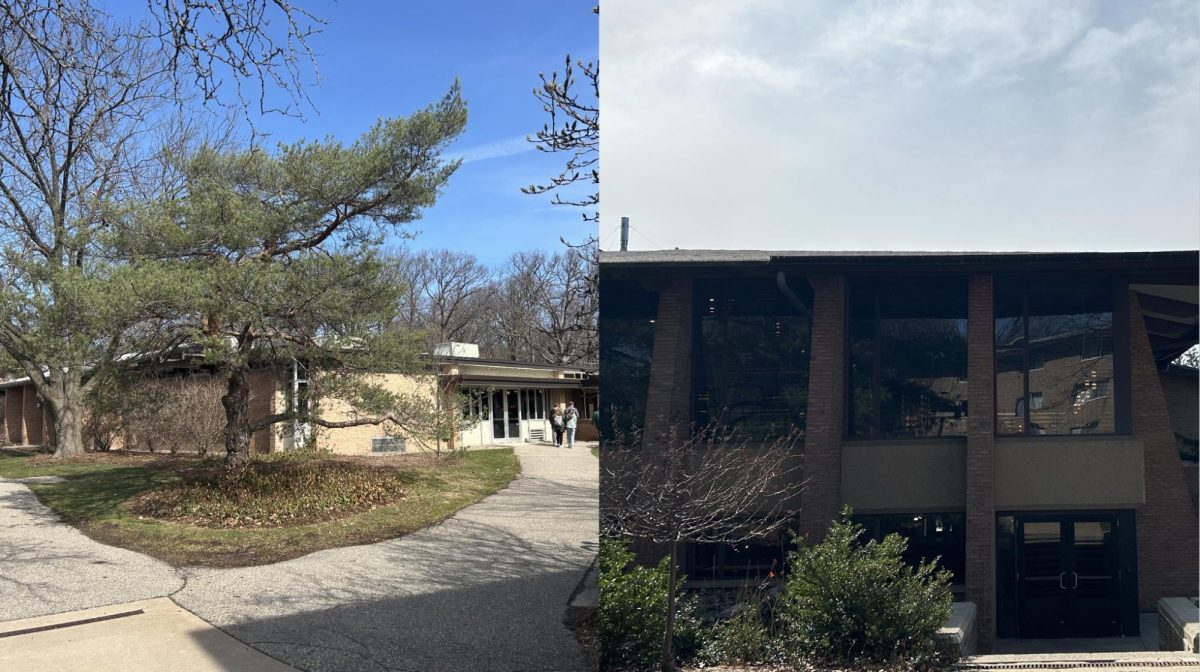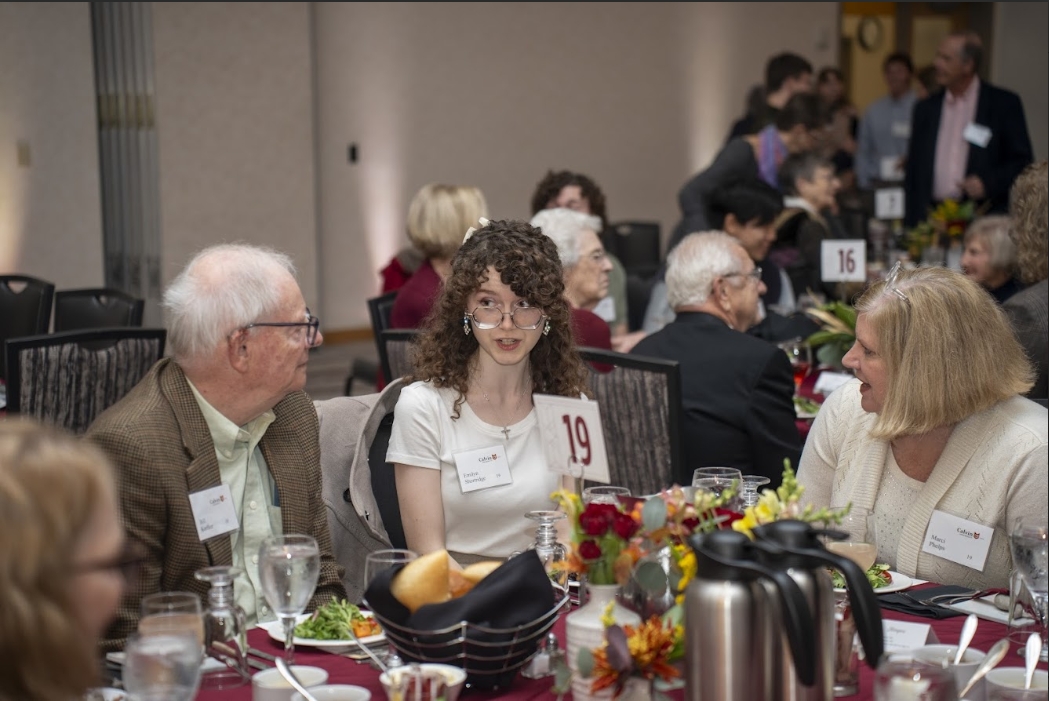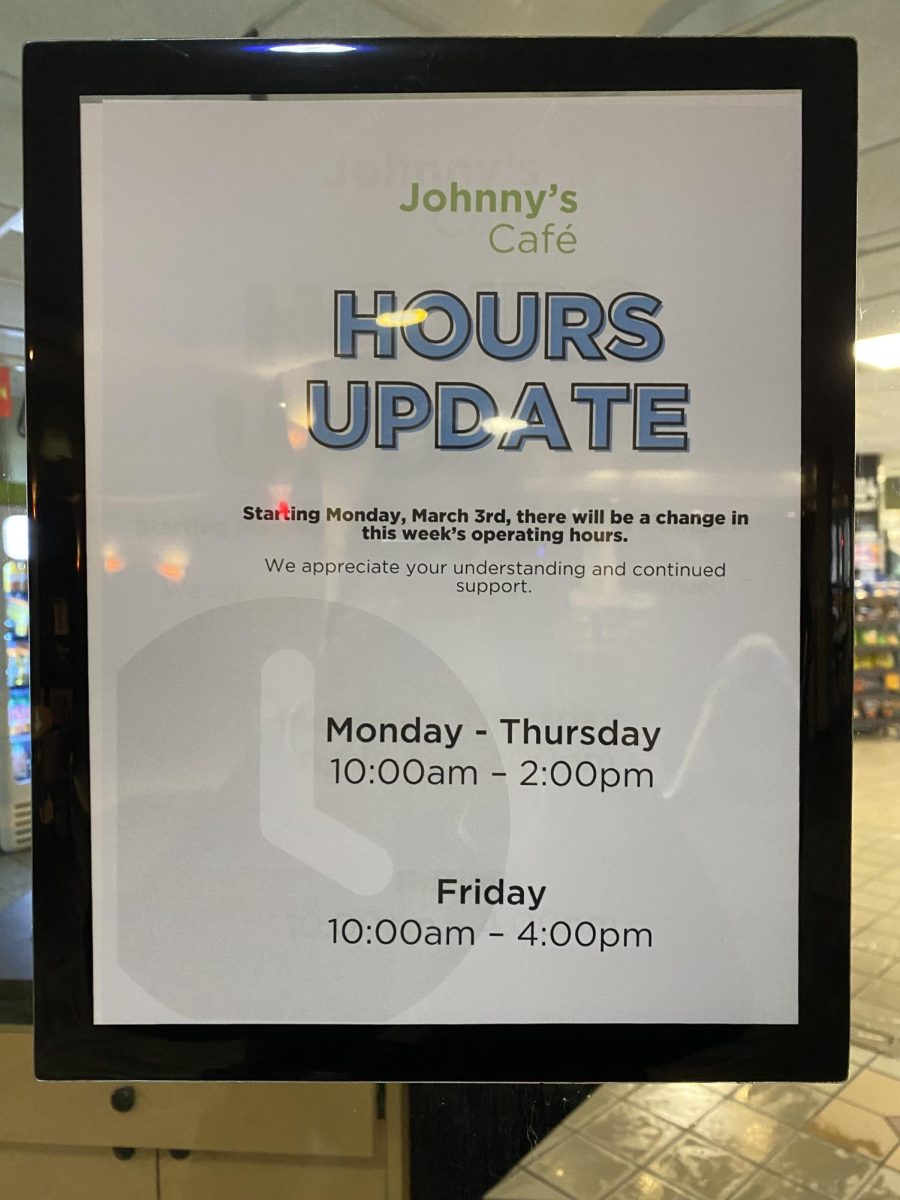The Service Learning Center’s (SLC) most recent blood drive, Blood Battle: Calvin Versus Hope, was a successful campaign, though the SLC’s goal was not only to beat Hope but to provide needed blood to the local community. Hope students, staff and faculty donated 46 units of blood while the Calvin community donated 48 units of blood.
Grace Hsu, director of operations at the SLC, told Chimes that the SLC typically coordinates four blood drives per year with Versiti, offering a way for students to volunteer and help out the local community. Calvin partners with Versiti — a non-profit blood collection organization that serves a large portion of the Grand Rapids community — for blood drives that happen on campus.
The SLC coordinates these events partly because 38% of the population is eligible, but only 5% of the eligible population chooses to donate blood. Given the fact that “One unit of blood can save up to three lives, and one in every seven patients who come into the hospital will need blood,” according to Hsu, she said it is important to encourage people to donate.
Natasha Melton, Versiti DS staff member and phlebotomist, told Chimes that all donated blood goes to local hospitals and patients in the community. “It’s really helpful for a lot of anemic patients, cancer patients, ICU and trauma victim patients as well as in the ER,” Melton said. As a phlebotomist, part of her work is ensuring donors are able to donate. “We take the donors’ temperature, pulse, blood pressure, check their iron and go through a series of health history questions to make sure they’re healthy enough to donate.”
Melton also emphasized that donating has benefits for the donor as well. Giving blood helps the bones stay active and produce more blood after donation.
Dawn Frambes, assistant professor of nursing and a registered nurse, told Chimes that blood is used in many different ways to help patients. According to Frambes, blood is not just used for people who need blood transfusions; it has a wide variety of uses in the hospital. Plasma can help dehydrated patients get fluids they need. Platelets help with clotting blood for people with low counts. Red blood cells help stabilize people’s oxygen flow and ensure that nutrition is delivered to all parts of the body. Finally, personalized biological treatments have been more recently developed for patients with chronic conditions derived from blood components.
College campuses are a particularly good place for blood drives because there are more people who are eligible to donate. According to Frambes, young people tend to be healthier and have fewer chronic conditions or medications that could prevent them from donating.
Frambes also noted that currently there is a high need for blood in the Grand Rapids area, and that all types of blood are always needed.
While giving blood may seem daunting, the Veriti staff tries to make donors as comfortable as possible. “The people who draw the blood are experts at putting you at ease, answering your questions, distracting you from the big needle [and] being very honest with you –– and you’re very, very closely monitored when you give blood,” Frambes told Chimes. “And they always have good snacks and cookies.”
Frambes also noted that with college students’ busy schedules, it is a great way to give back and help out. “It’s something that takes you 30 or 45 minutes to do, and that can have a benefit for months into the future and for many people who need it.”
Hsu made it clear that anyone, including international students, can donate blood, but they may have a few more screening questions to answer to make sure they are eligible. Many students are actually eligible and don’t realize it. “If you’ve been in the states for three consecutive years or are from East Asia or Europe, they let you donate,” Hsu said.
There will be upcoming blood drives in February and April of this year on Calvin’s campus. Hsu encouraged people interested to schedule their appointment when donation times become available.







